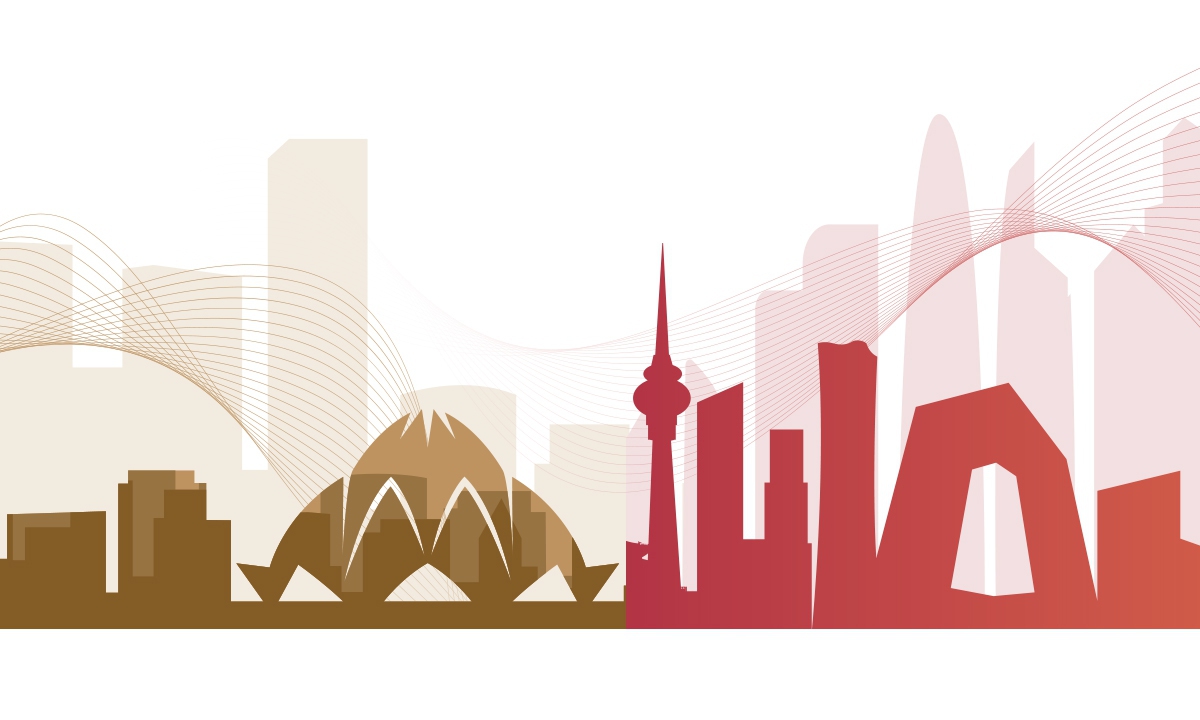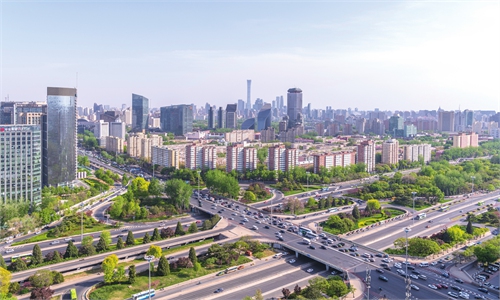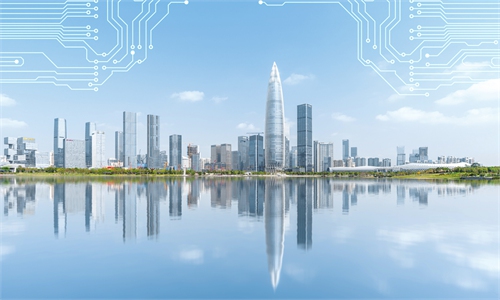
Photos: VCG
Editor's Note:
Earlier this month, Narendra Modi was sworn in as India's prime minister for a third term. Yet, his Bharatiya Janata Party (BJP) was forced to form a coalition government after losing parliamentary majority. What does this coalition government mean for India's policymaking, especially in terms of China policy? How will the Indian leader continue to push for the country's economic development? What could New Delhi learn from Beijing in this regard? Mohammed Saqib (Saqib), founder and secretary general of India China Economic & Cultural (ICEC) Council, shared his opinion, with Global Times (GT) reporter Xia Wenxin.
GT: What are your expectations for China-India relations in Modi's third term?
Saqib: The BJP, with its allies in the National Democratic Alliance (NDA), has formed a coalition government. For the new government, although it's a coalition government, all important portfolios remain with the BJP. So it seems there will be continuity of the policies and programs. It is possible that coalition partners did not demand anything at the center because they will demand something big for their state governments like special status for their province or a financial package for local development.
Regarding India-China relations, as I had expected, from the perspective of the new government, it seems there will not be any remarkable change in India's attitude toward China. However, some improvement in the relationship is expected because there is pressure from the industry to ease visa and other restrictions on Chinese business.
The India-China relations will also depend on the following factors: First, how the coalition partners see India-China relations. The Telugu Desam Party Chief N. Chandrababu Naidu is an extremely progressive, liberal and tech-savvy leader, so he will probably be in favor of improving relations with China, especially since he has also won the provincial elections and would need foreign direct investment (FDI) and technology for his province. Second, the NDA government is comparatively weak compared to the earlier two terms, so a consensus will have to be reached with the coalition partners, and the anti-China rhetoric may be less among the BJP cadre.
Overall, it is expected that India [under Modi's third term] will not be soft and accommodating on China. If China engages with India skillfully, things will improve.
GT: One of the urgent issues that Modi needs to deal with in his third term is India's economy, including prioritizing economic reforms. What will be at the top of the new government's economic agenda? What are the difficulties that New Delhi may face in realizing its economic ambitions and what role can China play in dealing with them?
Saqib: I strongly believe that the most urgent and important issue for the new government will be employment generation. According to reports, India's youth unemployment rate is among the highest in the world, making the generation of employment an absolute priority. To address this, a focus on labor-intensive manufacturing, particularly in the form of micro, small and medium enterprises, will be crucial. Additionally, prioritizing rural or semi-urban-based manufacturing to alleviate urban infrastructure issues is essential. Emulating the successful model in China, collaboration between the Indian corporate sector and the Chinese industry, supported by the Indian government, can pave the way for significant progress in this regard.
Not only India, but the world has a lot to learn from China's development. This includes poverty alleviation programs, rural development schemes, urbanization projects, development of industrial clusters, export promotion schemes, and most importantly, research and development and social infrastructure. China is willing to share its development story and experience with the world. Closer cooperation between India and China can result in mutual benefits.
GT: As a leading Indian economist, what do you think of the US decision to raise tariff rates on a range of Chinese exports, most of which are forms of "green" or low-carbon technologies? And what is your understanding of the "China overcapacity" hype in the West?
Saqib: The concern about China having too much production capacity in the West is driven by a few reasons. One reason is the worry of the US and Europe about the strong growth of China's electric vehicle industry. They are concerned about losing their lead in the competition in the automotive industry. Western countries are trying to limit Chinese companies' access to their markets and protect their own industries by exaggerating the idea of overcapacity. It shows a double standard of the Western countries advocating for green development while protecting their own industries. This contradictory approach undermines global efforts for green transformation and cooperation on climate issues. Describing overcapacity in China's new energy sector is the wrong way to talk about China's normal industrial change. It is meant to undermine China's right to development and can negatively affect global green development. There is also a lack of understanding of global demand. From a worldwide view, there is actually not enough capacity in the new-energy sector, not too much. The International Energy Agency predicts that in 2030, global sales of new energy vehicles will be 45 million units, showing an insufficient supply of new energy products worldwide.
GT: What role do you think India should play between China and the US?
Saqib: India, with its growing global influence and ties with both China and the US, has the potential to play a constructive but delicate role in easing tensions between the two superpowers. By using its neutral stance and commitment to strategic autonomy, India can facilitate dialogue and confidence-building measures between the two countries. India can highlight the importance of the shared interests of all three countries for global stability and economic interdependence and the need for cooperation on issues like climate and pandemics. But I must say that, while India has a limited influence, its status as the largest democracy and big advocate for a rules-based international order does carry goodwill, which can contribute to more stable relations.
GT: Both China and India are representatives of the Global South, playing an active role within international organizations, including BRICS and G20. What is the significance of China-India cooperation in the context of the rise of the Global South? How do you see the role of the two countries in promoting multipolarity in the world?
Saqib: India and China stand as two of the most significant countries in the Global South. They represent the largest and fastest-growing emerging economies. Both nations possess the leadership qualities and capabilities required to lead the Global South and establish a multipolar world. Their unique competitive advantages, when combined, would prove exceptionally beneficial for the Global South. It is undeniable that the world is on the verge of a new world order and multipolarity, with India and China, alongside other BRICS nations, spearheading this transformative shift.
GT: There are some conflicts and differences between India and China. Do you think they are still manageable? What role does the ICEC Council hope to play in stabilizing relations between the two countries? What efforts have been made?
Saqib: Yes, there are some differences, some misperceptions, and lots of propaganda involved in the India-China relationship. And it's not new or unmanageable. We have been managing the biggest issue, the border dispute, for a long time which can be managed or solved if there is a political will among our leaders. ICEC Council is involved in enhancing India-China friendship in multiple ways; as a think tank, we work on policies and dissemination of information through publications, seminars and conferences. We facilitate business collaboration and FDI; we promote cultural exchanges through delegations, events and high-level meetings. We want to enhance our activities further and foster the India-China relationship. To do this we need support from stakeholders and people from both countries.



